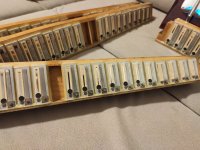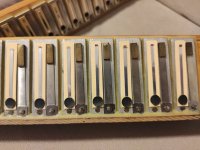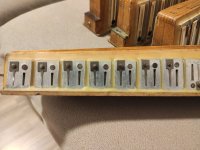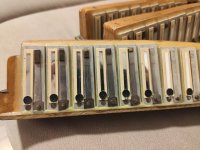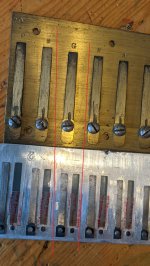Perhaps this has been discussed before and I missed it, but why are accordion reeds not made of stainless steel? Where I live, the humidity is extreme, and by far the number one problem I see is rusty reeds. I install dessicant packets inside all my and my clients accordions and in the cases, and keep a dehumidifier going around the clock, all to no avail. I have a melodica-type instrument called a Clavietta (a piano version of the Accordina) that has stainless steel reeds, and they sound great. Why have I never come across an accordion with stainless steel reeds? The near inevitability of reed corrosion in a wet climate would seem to be a major flaw in accordion design.
Edit: I see now that was discussed here in 2020. It was mentioned that stainless steel is not as loud as regular steel, and its true that my Clavietta is quieter than any of my melodicas, which have brass reeds, and quieter than an accordion, so I assume volume is the main reason. Still, I wish that reed makers would experiment with other materials for those of us in unavoidably damp climes.
Edit: I see now that was discussed here in 2020. It was mentioned that stainless steel is not as loud as regular steel, and its true that my Clavietta is quieter than any of my melodicas, which have brass reeds, and quieter than an accordion, so I assume volume is the main reason. Still, I wish that reed makers would experiment with other materials for those of us in unavoidably damp climes.
Last edited:

